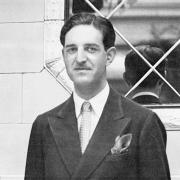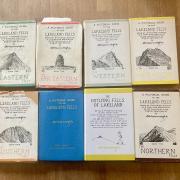Our resident historian Dr Derek J Ripley reveals how a 17th century version of the chainsaw massacre was averted
I noticed a couple of newly-weds in my local park the other day, apologising profusely to a small vicar whose hat they had accidentally knocked askew with a stray stick, thrown, somewhat carelessly, for their rough-haired dachshund.
I wondered, not for the first time, whether they, or countless other dog-owners, ever stop to consider the ‘Yealand Tree Men’ without whose struggles in the 17th century their dogs would be forced to exercise in a stick-less fashion ?
In late 1657, Lancashire towns and villages did not have what we now know as pavements, but nevertheless the casual walker’s easy passage was often equally impeded, particularly in the autumn by fallen sticks, twigs and branches.
Since medieval times, all ‘fruits of the tree’, as these were known, were the property of the Crown and, as such, ordinary citizens were forbidden to ‘picke, lifft or elsewise transportte’ them. The only persons legally authorised to handle fallen wood were the Crown-appointed ‘Sheriffs of the Woods’. These men guarded their duties zealously and would impose an immediate, harsh fine on citizens moving any part of a fallen tree without proper licence. After a storm, the main street of many a Lancashire town would be almost impassable until the ‘Wood Sheriffs’ arrived to carry out their clearance duties.
Matters came to a head in 1657 in the small north Lancashire village of Yealand Conyers. The road through the village was guarded at both ends by two magnificent oak trees, whose branches fell regularly throughout the year, causing not a little inconvenience. After the ‘grate lightninge storme’ of November 1657, both oaks fell across the road, effectively isolating the village. The Parish Council made the appropriate representations to the Sheriffs, however, as these stubborn men managed their affairs in a strictly alphabetical manner, it quickly became obvious to the disgruntled villagers that they would be cut off until at least the following summer.
In a joint action with the similarly, alphabetically-disadvantaged villages of Waddington, Whitewell, Wiswell, Worston and Up Holland, over a thousand villagers marched on Parliament with a petition to Oliver Cromwell for the right to remove wood, unimpeded by feudal laws. Arriving at the City of London, they were confronted by a gigantic barricade of twigs and logs, hastily erected by the Sheriffs. To touch this obstacle would have placed the marchers in breach of the law and facing the threat of fines, imprisonment, or worse.
The quick-thinking leader of the marchers, Hamer Blenkinsop, advised the Sheriffs of his plan to remove the blockade without touching it directly – using a flaming torch. Cromwell, realising the potentially disastrous consequences of such a conflagration for the City, had no option but to immediately repeal the legislation. Triumphant in their victory, the ‘Yealand Tree Men’ paraded back to their villages, brandishing branches and stopping only at 138 hostelries en route. On their return, they discovered that the offending oak trees had been quietly sawn into winter logs by their womenfolk, but the point had been made. Never again would Lancashire men be deprived of their right to forage and appropriate stray wood.
As usual, where Lancashire led, the country soon followed, but who nowadays recalls that the innocent pleasure of throwing a stick for a small dog is the result of such a hard-fought battle ?



























